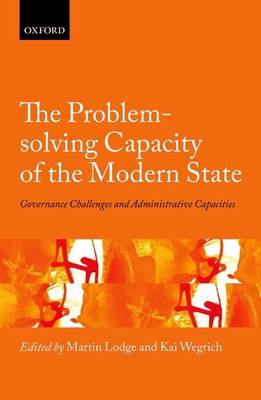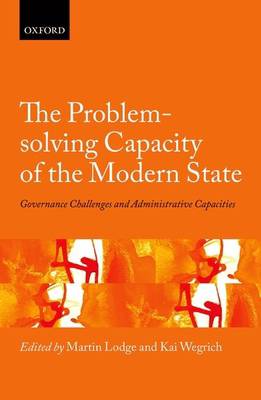
- Retrait gratuit dans votre magasin Club
- 7.000.000 titres dans notre catalogue
- Payer en toute sécurité
- Toujours un magasin près de chez vous
- Retrait gratuit dans votre magasin Club
- 7.000.0000 titres dans notre catalogue
- Payer en toute sécurité
- Toujours un magasin près de chez vous
Problem-Solving Capacity of the Modern State
Governance Challenges and Administrative Capacities
Martin Lodge
225,95 €
+ 451 points
Description
The early 21st century has presented considerable challenges to the problem-solving capacity of the contemporary state in the industrialised world. Among the many uncertainties, anxieties and tensions, it is, however, the cumulative challenge of fiscal austerity, demographic developments, and climate change that presents the key test for contemporary states. Debates abound regarding the state's ability to address these and other problems given increasingly dispersed forms of governing and institutional vulnerabilities created by politico-administrative and economic decision-making structures. This volume advances these debates, first, by moving towards a cross-sectoral perspective that takes into account the cumulative nature of the contemporary challenge to governance focusing on the key governance areas of infrastructure, sustainability, social welfare, and social integration; second, by considering innovations that have sought to add problem-solving capacity; and third, by exploring the kind of administrative capacities (delivery, regulatory, coordination, and analytical) required to encourage and sustain innovative problem-solving. This edition introduces a framework for understanding the four administrative capacities that are central to any attempt at problem-solving and how they enable the policy instruments of the state to have their intended effect. It also features chapters that focus on the way in which these capacities have become stretched and how they have been adjusted, given the changing conditions; the way in which different states have addressed particular governance challenges, with particular attention paid to innovation at the level of policy instrument and the required administrative capacities; and, finally, types of governance capacities that lie outside the boundaries of the state.
Spécifications
Parties prenantes
- Auteur(s) :
- Editeur:
Contenu
- Nombre de pages :
- 328
- Langue:
- Anglais
- Collection :
Caractéristiques
- EAN:
- 9780198716365
- Date de parution :
- 30-12-14
- Format:
- Livre relié
- Format numérique:
- Genaaid
- Dimensions :
- 155 mm x 236 mm
- Poids :
- 635 g

Les avis
Nous publions uniquement les avis qui respectent les conditions requises. Consultez nos conditions pour les avis.






